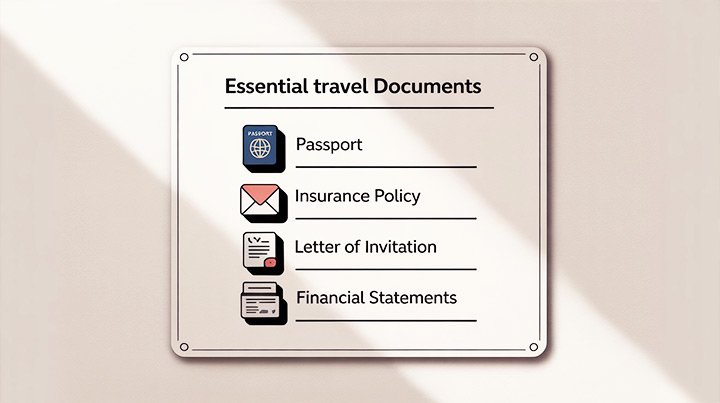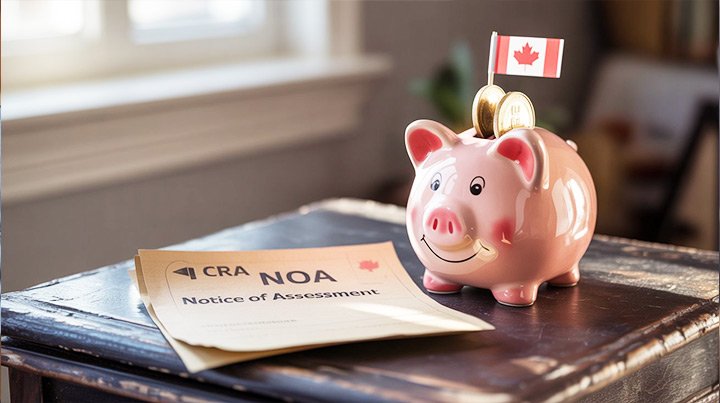The Canadian Super Visa offers a wonderful opportunity for parents and grandparents of Canadian citizens and permanent residents to enjoy extended stays with their families in Canada. However, the application process is detailed, and meeting all requirements is key to success. If you’re planning to apply for a Super Visa, especially as we approach 2025, understanding how to build a robust and convincing application is essential to avoid refusal. This guide will walk you through the critical components of a strong Super Visa application, drawing on best practices and common pitfalls to help you prepare a compelling case.
The goal: to facilitate joyful family reunions in Canada.
The Challenge: Navigating the comprehensive requirements and demonstrating clear eligibility.
Let’s explore how to make your Super Visa application as strong as possible.
Understanding Key Super Visa Eligibility & Requirements for 2025
Before diving into strengthening your application, let’s establish the baseline Super Visa eligibility criteria as per Immigration, Refugees and Citizenship Canada (IRCC). Both the applicant (parent/grandparent) and the inviter (child/grandchild in Canada) have distinct roles and responsibilities.
For the Applicant (Parent/Grandparent):
- Relationship Proof: You must be the parent or grandparent of a Canadian citizen or a permanent resident of Canada.
- Application from Outside Canada: You must apply for the Super Visa from outside Canada.
- Letter of Invitation: A signed letter from your child or grandchild inviting you to Canada is essential. This letter should detail their commitment to support you financially during your stay. Letter of invitation for visitors to canada Sample.
- Immigration Medical Exam (IME): You must undergo and pass an IME conducted by an IRCC-approved panel physician.
- Canadian Medical Insurance: This is a critical Super Visa requirement. You must provide proof of private medical insurance from a Canadian insurance company that:
Is valid for at least one year from your date of entry to Canada.
Provides a minimum of CAD $100,000 in coverage.
Covers health care, hospitalization, and repatriation.
Proof of full payment (or a deposit with an installment plan, if allowed by the insurer and acceptable to IRCC) is necessary. - Admissibility: You must be admissible to Canada (e.g., no serious criminality or health risks beyond what can be managed).
For the Inviter (Child/Grandchild in Canada):
- Status in Canada: Must be a Canadian citizen or a permanent resident.
- Relationship Proof: Must prove their relationship to you (the applicant).
- Minimum Necessary Income (LICO): This is a major factor. The inviter (and their spouse/common-law partner, if co-signing) must meet or exceed the Low Income Cut-Off (LICO) for their total family size (including themselves, their dependents, and you, the Super Visa applicant(s)).
Tip: Always refer to the latest LICO table on the official IRCC website (canada.ca), as these figures are updated annually.

How to Make a Strong Super Visa Application: Addressing Common Pitfalls
Many applications falter due to common, avoidable mistakes. Building a strong Super Visa application means proactively addressing these areas.
Critical: The Inviter’s Financial Capacity (Meeting LICO)
This is a frequent reason for Super Visa refusal.
- Provide Unquestionable Proof:
Notice of Assessment (NOA): The most recent NOA from the Canada Revenue Agency (CRA) for the inviter (and co-signing spouse) is the primary document. Line 15000 (Total Income) is what officers look at. - Employment Letter: A detailed letter from the inviter’s employer stating their position, salary/wage, hours, date of hiring, and confirmation of ongoing employment.
Pay Stubs: Recent pay stubs (e.g., last 3-6 months).
Bank Statements: To show consistent income and sufficient funds. - Calculating Family Size for LICO: Ensure you correctly count the inviter, their spouse/partner, their dependent children, AND the Super Visa applicant(s).
Verifying LICO: Calculate the family size correctly (inviter + their spouse/partner + their dependent children + the Super Visa applicant(s)). Find the corresponding LICO on the IRCC website for the year you are applying. For example, for a total family size of 4 people, the LICO for 2024 was CAD $55,529 (this is an example – always verify current figures). - Co-Signer (Spouse/Common-Law Partner): The inviter’s spouse can co-sign. Their income can be included if they also meet host requirements (status in Canada, etc.) and provide all necessary financial documentation. Proof of their relationship (e.g., marriage certificate) is also needed
Meeting the LICO (Low Income Cut-Off) threshold does not solely depend on your Notice of Assessment exceeding the income listed on the official website. You must also provide supporting documents such as pay stubs, a letter of employment, and bank statements showing where your income is deposited. IRCC carefully verifies income by cross-checking your bank statements and calculating the total annual income to determine if it meets the LICO requirement. They do not rely solely on the Notice of Assessment. It is important not to assume that submitting only the Notice of Assessment will be sufficient.
Proving Genuine Relationship & Inviter’s Status
- Applicant-Inviter Link: Provide clear birth certificates that establish the parent-child or grandparent-grandchild link. Family relationship certificates from your home country local VDC can also be supportive.
- Inviter’s Status: Clear copies of the inviter’s Canadian Permanent Resident card, eCOPR (Confirmation of Permanent Residence), or Canadian passport.
The “Purpose of Visit” – More Than Just a Visit
While family reunification is the core, your application should convey:
- Specific Intentions: Mentioning specific reasons like wanting to be present for a grandchild’s birthday, helping with a newborn, or attending family celebrations makes the visit more tangible.
- Temporary Stay: Reiterate that the visit is temporary, even though a Super Visa allows for longer stays per entry.

How to Avoid Super Visa Refusal: Strengthening Your Ties to Home Country
A major hurdle for many visa applications is failing to convince the officer of significant ties to the home country, implying an intent to return. This is crucial for how to avoid Super Visa refusal.
- Employment/Business:
If Employed: An official letter from your employer confirming your position, salary, length of employment, approved leave for the visit, and expected date of return.
If Self-Employed/Business Owner: Comprehensive business documentation (registration, tax clearance certificates, recent financial statements/audit reports, invoices, photos of the business). Explain how the business will be managed in your absence and why your return is essential for its continued operation. - Family Ties:
Spouse, other children, or dependent elderly family members remaining in your home country are strong ties.
Provide marriage certificates, birth certificates of dependents, and potentially letters of support from family explaining your responsibilities.
Letter of Support: A letter from a family member explaining your importance to the family, why applicant/invitee isthe most needed person in the household back home, and how you provide care and support for your family. Attached ther identification like passport.
Any expenses related to the family, including medical bills and daily living costs, for which applicant/invitee family back home depends on you. - Property and Assets:
Ownership of real estate (home, land).
Rental income from properties.
Proof: Property deeds, valuation reports, lease agreements, property tax receipts. - Financial Stability in Home Country:
Bank statements showing a healthy financial history and savings.
Investments or pension plans. - Previous Travel History:
A history of complying with visa conditions in other countries (e.g., USA, UK, Schengen) can be beneficial.
Super Visa Refuse? What To Do & How to Reapply Strongly
Receiving a Super Visa refusal is disappointing, but it’s not always the end. If you’re wondering “Super Visa refuse what to do?”, the first step is understanding why.
Analyze the Refusal Letter Meticulously
The refusal letter will state the officer’s reasons. Common reasons include:
- Inviter not meeting LICO.
- Insufficient proof of relationship.
- Weak ties to home country.
- Concerns about the genuineness of the visit or funds.
- Incomplete application or missing documents.
Consider Ordering GCMS Notes
For applications processed in Canada, you (or your representative/inviter) can request Global Case Management System (GCMS) notes. These provide more detailed insights into the officer’s reasoning than the standard refusal letter.
Strategize Your Reapplication – Don’t Just Resubmit!
To reapply strongly for a Super Visa:
- Address EVERY Concern: Directly address each point mentioned in the refusal letter (and GCMS notes, if obtained).
- Provide New and Substantial Information: Simply resubmitting the same documents is unlikely to change the outcome. Show how circumstances have changed or how you’ve strengthened the previously weak areas.
Example: If LICO was an issue, provide updated NOAs showing higher income, or add a qualifying co-signer. If ties to home were weak, gather more extensive proof of assets, employment, or family responsibilities. - Write a Strong Cover Letter: Explain how you’ve addressed the previous refusal reasons, highlight new information, and clearly outline why you now meet all Super Visa eligibility criteria.
- Ensure Previous Errors are Corrected: If a previous application had missing documents or incorrect forms, double-check everything.

Special Circumstances: Criminal Rehabilitation
If the applicant has a past criminal conviction, this can lead to inadmissibility.
- Disclosure is Key: Be honest about any past convictions.
- Criminal Rehabilitation: If sufficient time has passed since the completion of all sentences, the applicant may need to apply for and receive Criminal Rehabilitation approval from IRCC before applying for a Super Visa. This makes them admissible again.
- Seek Criminal Rehabilitation: If a certain period (typically five years or more) has passed since the completion of all sentences (including probation, fines paid, etc.), you may be eligible to apply to IRCC for Criminal Rehabilitation.
- Documentation: Include the official IRCC approval letter for Criminal Rehabilitation, along with relevant police clearances (e.g., from home country and any country where lived for 6+ months).
- Temporary Resident Permit (TRP): In some limited situations, a TRP might be considered, but for long-term solutions like the Super Visa, rehabilitation is generally the required path.
- Provide Proof: If your application for Criminal Rehabilitation is approved by IRCC, include the official approval letter. Also, provide police clearance certificates from your current country of residence and from any country where you have lived for six months or more since the age of 18.
This is a complex legal area. Seeking advice from an authorized immigration representative is highly recommended if this applies to you.
The Comprehensive Document Checklist: Your Path to a Strong Super Visa Application
A meticulously organized application is impressive. Here’s a general list (always refer to the IRCC Supervisa specific checklist):
| Category | Required Documents |
|---|---|
| Applicant’s Documents | – Completed and signed application forms (IMM5257, IMM5707, etc.) – Passport (bio-page, all visas/stamps) – Digital Photo – Purpose of Travel Letter (from applicant) – Proof of relationship to inviter (birth certificates) – Proof of ties to home country (employment, property, finance, family) – Super Visa Medical Insurance Policy (meeting all requirements) – Confirmation of Medical Exam – Criminal Rehabilitation approval & police certificates (if applicable) – Previous refusal letters (if reapplying) |
| Inviter’s Documents | – Letter of Invitation (signed) – Proof of Status in Canada (PR card, eCOPR, passport) – Proof of Canadian address – Proof of relationship to applicant – Marriage certificate (if co-signing spouse) – Most recent CRA Notice of Assessment (NOA) – Letter of Employment & recent pay stubs – Bank statements – Grandchild’s birth certificate |
Conclusion: Your Journey to a Successful Super Visa Application
Securing a Super Visa requires diligence, transparency, and a thorough understanding of Super Visa requirements. By focusing on building a strong Super Visa application from the outset, addressing all financial and eligibility criteria, proving significant ties to your home country, and meticulously preparing your documentation, you can significantly avoid Super Visa refusal. If you need to reapply, a strategic approach addressing previous concerns is key. With careful preparation, you can look forward to those precious extended family moments in Canada.
Frequently Asked Questions (FAQs) about Super Visa Canada
Q1: What are the most common reasons for Super Visa refusal?
A: Common reasons include the inviter not meeting the LICO (Low Income Cut-Off), insufficient proof of ties to the applicant’s home country, concerns about the genuineness of the visit, incomplete documentation, or issues with the mandatory medical insurance.
Q2: How can I make my Super Visa application stronger if I’m reapplying after a refusal?
A: To reapply strongly for a Super Visa, first understand the exact reasons for the previous refusal (obtain GCMS notes if possible). Then, gather new and substantial evidence to directly address each concern. For example, if LICO was an issue, provide updated income proof. If ties were weak, provide more comprehensive documentation. A detailed cover letter explaining the improvements is also crucial.
Q3: What is the LICO for Super Visa in 2025, and how is family size calculated?
A: The LICO figures are updated annually by IRCC. You must check the official IRCC website (canada.ca) for the LICO table applicable to the year you are applying. Family size includes the inviter, their spouse/partner, their dependent children, plus the Super Visa applicant(s) being invited.
Q4: Is Canadian medical insurance truly mandatory for a Super Visa?
A: Yes, it’s a strict Super Visa requirement. You must provide proof of a valid policy from a Canadian insurance company for at least $100,000 in coverage, valid for one year from entry, covering health care, hospitalization, and repatriation.
Q5: How important are ties to my home country for a Super Visa application?
A: Extremely important. Demonstrating strong financial, family, employment, and property ties to your home country helps convince the visa officer that you intend to return after your visit, which is key to how to avoid Super Visa refusal.



